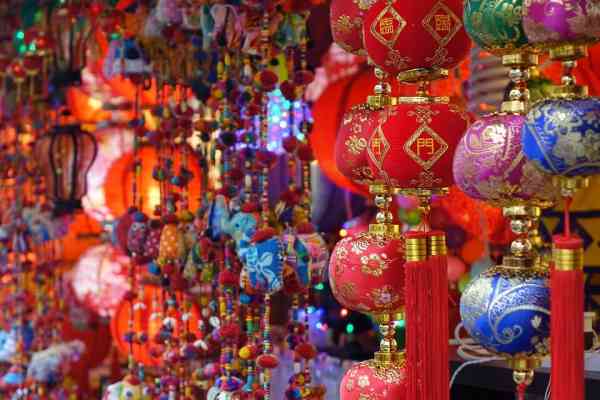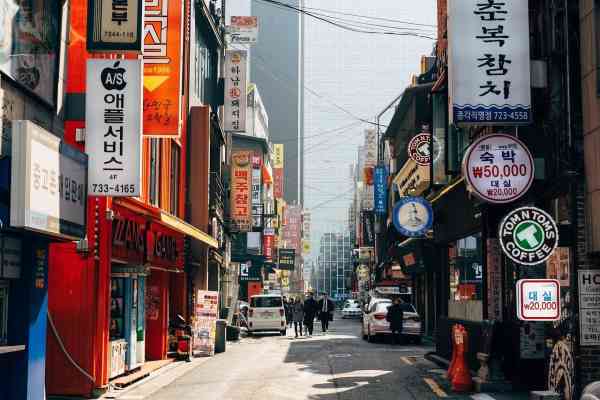January 7th, 2021 | 09:30 CET
Alibaba, GS Holdings, LVMH: Growth markets in Asia
Asia is a vast market. In the coming years, millions of people in China and other Asian countries will become wealthy. Even modest prosperity can lead to huge returns on the stock market. The reason: the emerging middle class increasingly treats itself to electrical goods, restaurant visits or even the odd luxury item. For luxury goods manufacturers such as LVMH, Asia has long been one of the most significant growth markets. Alibaba has successfully adapted Amazon's shopping concept for the Asian market and offers excellent long-term growth opportunities. GS Holdings operates food courts in Singapore and is also active as a service provider for all aspects of gastronomy.
time to read: 2 minutes
|
Author:
Nico Popp
ISIN:
SG1CF0000001 , US01609W1027 , FR0000121014
Table of contents:

"[...] We recognized that there is a lack of business models that combine innovative business concepts, such as "new retail" solutions and omni-channel strategies, with conventional business segments. [...]" Fan Xian Yong, CEO, The Place Holdings
Author
Nico Popp
At home in Southern Germany, the passionate stock exchange expert has been accompanying the capital markets for about twenty years. With a soft spot for smaller companies, he is constantly on the lookout for exciting investment stories.
Tag cloud
Shares cloud
Alibaba: The conflict with Beijing continues to smoulder
The best-known Asian stock is Alibaba. The stock has been the talk of the town recently, especially with sensational stories. After the cancelled IPO of the fintech subsidiary Ant Group and Alibaba founder Jack Ma's disappearance, rumors are flying: Is Ma being held somewhere? Has he been put under pressure? Has he withdrawn for personal reasons? This much is certain: the formerly communicative Ma has not appeared in public for months. The background to the rumors is that the central government in Beijing is critical of the rise of the tech giants and their increasingly self-assured demeanor. Ant Group's planned record IPO, which was also expected to exceed Saudi Aramco's IPO in 2019, was presumably cancelled in part because of this conflict.
For a Company like Alibaba, this headwind does not bode well. If Beijing takes a closer look at Alibaba in the future, many business areas in development could no longer be expanded - for example, in the digital sector. As a purely online retailer, Alibaba remains attractive, but without the imagination of new startups and ideas, it lacks the salt in the soup. The stock has failed to deliver a return on a twelve-month view. Over a period of three months, it has fallen by around 20%. Currently, the risks outweigh the rewards. However, if the dispute between Alibaba and Beijing subsides, the stock will become interesting again.
GS Holdings: Small Singapore share with big China fantasy
The GS Holdings share is trading entirely under the radar of the market and the Chinese government. The Singapore Company operates several food courts in the city-state and is also active as a consultant for brand development in the foodservice industry. Its 'Sing Swee Kee' brand represents a chicken-and-rice concept, and 'Raffles Coffee' offers traditional Nanyang-style coffee. Both brands are to expand into China.
After years of losses, GS Holdings brought in a gross profit of SGD 30.2 million in 2019. Sales increased more than fourfold to SGD 35.7 million in the same period. Liabilities decreased significantly compared to the previous year. The Company's market capitalization is currently SGD 92 million, and the share in the middle of its 52-week range is trading at SGD 0.50. The share has also been tradable in Germany for a few weeks. However, due to the limited liquidity, investors should work with limits.
LVMH: Back on track thanks to Asia
When the Asian growth story is mentioned, the name of LVMH often comes up. The luxury goods group offers brands such as Louis Vuitton, Kenzo or even Dior and TAG Heuer. Since luxury goods are frequently bought at the airport or while travelling, the pandemic also weighed on LVMH's share price. However, the luxury top dog quickly recovered from the Corona shock, and the healthy development of the economy in Asia also contributed positively. The pandemic is better under control there than in Europe or the USA. There is also an opportunity in the crisis for LVMH: If it succeeds in establishing digital sales channels in the luxury segment, it could also appeal to more young customers in the future.
The figures at LVMH already recovered in the third quarter and appeased the market. Business was particularly good for Louis Vuitton and Christian Dior. Another positive factor is that LVMH offers high-quality spirits in addition to accessories and jewelry - and people are drinking, after all, even in times of crisis. On a one-year view, the share price rose by around 18%. The value recently reached its five-year high again, showing that a profitable Asian business is proving its worth, especially in the crisis.
Conflict of interest
Pursuant to §85 of the German Securities Trading Act (WpHG), we point out that Apaton Finance GmbH as well as partners, authors or employees of Apaton Finance GmbH (hereinafter referred to as "Relevant Persons") may in the future hold shares or other financial instruments of the mentioned companies or will bet on rising or falling on rising or falling prices and therefore a conflict of interest may arise in the future. conflict of interest may arise in the future. The Relevant Persons reserve the shares or other financial instruments of the company at any time (hereinafter referred to as the company at any time (hereinafter referred to as a "Transaction"). "Transaction"). Transactions may under certain circumstances influence the respective price of the shares or other financial instruments of the of the Company.
Furthermore, Apaton Finance GmbH reserves the right to enter into future relationships with the company or with third parties in relation to reports on the company. with regard to reports on the company, which are published within the scope of the Apaton Finance GmbH as well as in the social media, on partner sites or in e-mails, on partner sites or in e-mails. The above references to existing conflicts of interest apply apply to all types and forms of publication used by Apaton Finance GmbH uses for publications on companies.
Risk notice
Apaton Finance GmbH offers editors, agencies and companies the opportunity to publish commentaries, interviews, summaries, news and etc. on news.financial. These contents serve information for readers and does not constitute a call to action or recommendations, neither explicitly nor implicitly. implicitly, they are to be understood as an assurance of possible price be understood. The contents do not replace individual professional investment advice and do not constitute an offer to sell the share(s) offer to sell the share(s) or other financial instrument(s) in question, nor is it an nor an invitation to buy or sell such.
The content is expressly not a financial analysis, but rather financial analysis, but rather journalistic or advertising texts. Readers or users who make investment decisions or carry out transactions on the basis decisions or transactions on the basis of the information provided here act completely at their own risk. There is no contractual relationship between between Apaton Finance GmbH and its readers or the users of its offers. users of its offers, as our information only refers to the company and not to the company, but not to the investment decision of the reader or user. or user.
The acquisition of financial instruments entails high risks that can lead to the total loss of the capital invested. The information published by Apaton Finance GmbH and its authors are based on careful research on careful research, nevertheless no liability for financial losses financial losses or a content guarantee for topicality, correctness, adequacy and completeness of the contents offered here. contents offered here. Please also note our Terms of use.




